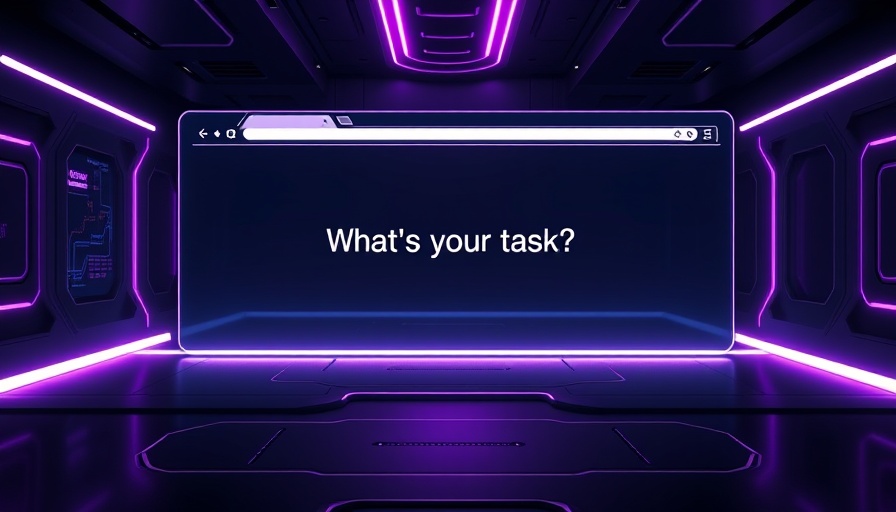
Introducing Opera's Groundbreaking Browser Operator
The tech world is buzzing with excitement as Opera brings a revolutionary new feature to its web browser: the Browser Operator, an AI-driven agent poised to transform how users interact with the web. This notable innovation marks Opera as the first major browser to integrate agentic AI, enabling users to delegate various online tasks simply by explaining their needs in natural language.
What Makes Agentic AI Special?
Agentic AI refers to systems that can autonomously perform tasks rather than just generating content based on prompts. Opera’s Browser Operator can take on numerous browsing chores, which means users can spend less time on monotonous tasks like comparing prices or filling out forms. This is not just a time-saver; it also allows individuals to focus on more meaningful activities.
Transforming Web Browsing into a User-Centric Ecosystem
As Opera’s Executive Vice President, Krystian Kolondra, stated, “For more than 30 years, the browser gave you access to the web, but it has never been able to get stuff done for you.” This sentiment encapsulates Opera's vision to shift the browser from merely displaying content to actively assisting users in their online endeavors. The Browser Operator enables smoother interactions by employing client-side solutions within the browser, thereby safeguarding user privacy while boosting efficiency.
The Mechanism Behind Browser Operator
At its core, Browser Operator utilizes the browser’s Document Object Model (DOM) to understand and manipulate web pages. Unlike traditional AI tools that offload processing to cloud servers, the Browser Operator operates natively, enhancing speed and privacy since all operations occur locally. For users, this means more seamless experiences without the lag associated with cloud-based processing.
Empowering Users Through Control
Users maintain control throughout the interaction. Whenever the Browser Operator encounters a task requiring user input—like confirming an order or filling out a sensitive form—it will pause and request confirmation. This hybrid approach not only fosters user autonomy but also reassures individuals that they can intervene whenever necessary.
Market Impact and Future Directions
Opera’s commitment to integrating agentic AI into its browser could reshape its position in a competitive industry dominated by giants like Chrome and Edge. While there’s no doubt these established players carry significant market weight, Opera’s innovative features could attract tech-savvy users eager for cutting-edge tools. According to market analysts, success will depend on how well Opera communicates its value and cultivates user adoption.
Why Should Tech Enthusiasts Care?
For tech enthusiasts, the rise of agentic AI signals a broader trend towards autonomy in technology. As applications become increasingly adept at understanding and executing user intentions, this not only streamlines processes but also opens new avenues for creativity and productivity. Browsers are evolving—no longer static tools but dynamic assistants that mold the online experience to fit user needs.
A Bright Future for AI in Browsing
Looking ahead, it is evident that agentic AI, like the Browser Operator, represents just the beginning of a wave of innovations that will soon permeate the digital landscape. David Johnston, a notable contributor to AI developments, predicts that smart agents will become ubiquitous across platforms, enhancing productivity and ease of use in unprecedented ways.
As we watch these developments unfold, one thing is clear: Opera is positioning itself at the forefront of this technological revolution, demonstrating how AI can fundamentally change our approach to browsing and beyond. For those ready to embrace the future, the Browser Operator is a leap towards a world where technology works for us—rather than the other way around.
 Add Row
Add Row  Add
Add 




 Add Row
Add Row  Add
Add 

Write A Comment